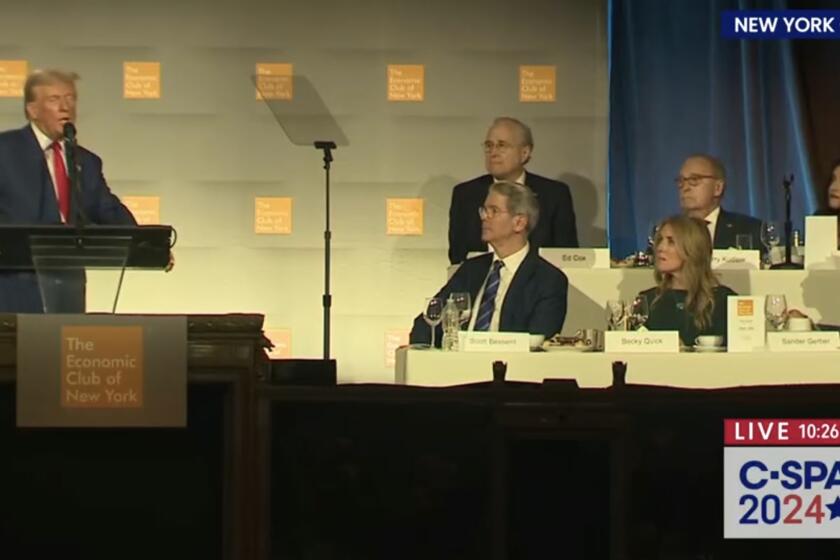Always low penalties
THIEVES, MUGGERS AND OTHER lawbreakers would have an easier life if police and prosecutors operated like the U.S. Labor Department. They could work out a deal giving them advance notice of when police were going to monitor their activities. Those still dumb enough to get caught might avoid punishment by staying out of trouble for a couple of weeks.
That’s precisely the sort of deal the government handed to Wal-Mart after the retailer, not known for its kind treatment of employees, was charged with 85 child-labor violations in three states involving underage workers who operated dangerous machinery.
In a settlement, the retailer agreed to pay $135,540 -- hardly a punitive fine for a company that reported more than $10 billion in earnings last year. As part of the deal, the Labor Department agreed to give Wal-Mart 15 days’ notice before sending inspectors to look for child-labor violations. According to a report by the department’s inspector general, this violates the agency’s own handbook.
And if, even with advance notice, the retailer can’t avoid violating the law, it can still escape citations and fines if it cleans up the problem within 10 days. The report notes that agency officials allowed Wal-Mart lawyers to write much of the agreement and cut their own legal division out of the action.
Wal-Mart only did what any business would -- cutting the best possible deal for itself. But it’s hard to fathom why the Labor Department agreed, in essence, not to protect underage workers in any meaningful way. Neither the agency nor the children whose interests it should have represented won any concessions from Wal-Mart. That’s not a deal, it’s a giveaway that provides Wal-Mart with no incentive to walk the straight and narrow.
Unfortunately, this is only the latest in a string of actions by the Bush administration that put too much of the government oversight role into the hands of the industries it’s supposed to be overseeing. Two years ago, political appointees in the Environmental Protection Agency bypassed the agency’s own expert staff on mercury pollution and allowed industry lobbyists to write key parts of the administration’s mercury proposal.
Earlier this year, the Bureau of Land Management allowed consultants funded by the oil and gas industry to process drilling applications. The BLM was then forced to pull back a faulty, pro-drilling report after other federal agencies protested.
Agencies funded with public money are supposed to protect the public interest. That’s a message this administration has too often forgotten.
More to Read
Inside the business of entertainment
The Wide Shot brings you news, analysis and insights on everything from streaming wars to production — and what it all means for the future.
You may occasionally receive promotional content from the Los Angeles Times.










